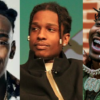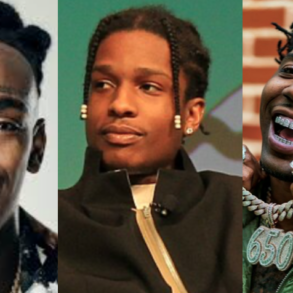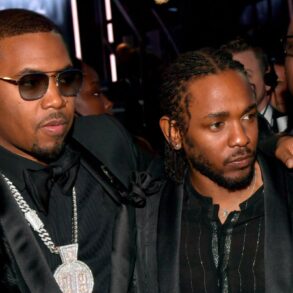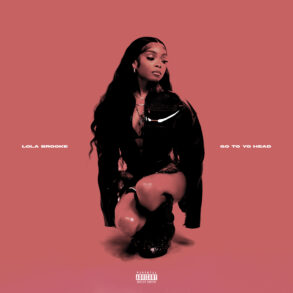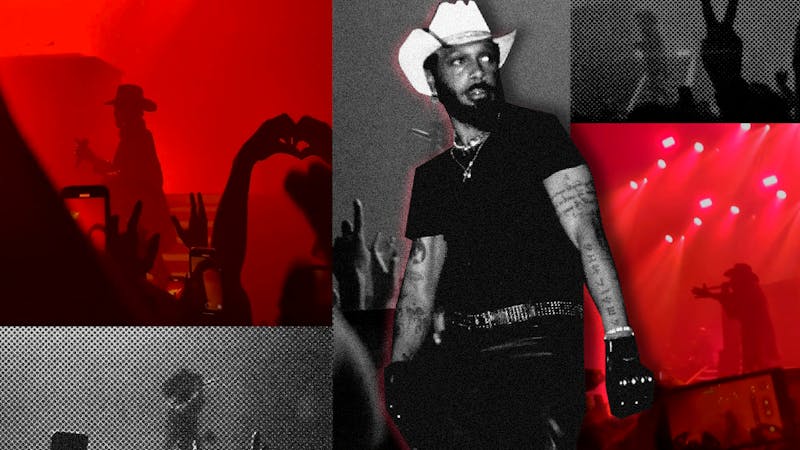
On Sept. 11, Kendrick Lamar began a funeral procession. Through a lowkey post on his Instagram account, he released the five–minute track “watch the party die,” where he mourns over the “death” of the hip–hop industry.
It’s far from the first time that he’s tackled the pitfalls of “the culture” at large. In his universally acclaimed 2015 album To Pimp a Butterfly, he touches on how the music industry exploits him and other Black artists that are naively captivated by their promises of riches and fame. However, in this new track, he turned the spotlight from the executives and agents of gilded record companies to his own colleagues for failing to mature from their materialism, a tendency that Lamar claims perpetuates conformity and inauthenticity in hip–hop. It’s a claim that is easily verifiable—rappers like Drake and Future are hesitant to drop bars about anything other than women, money, and fame over a boring trap beat and the rest of the industry follows suit.
In such a stagnant ecosystem, one might ask: where can hip–hop go from here?
Enter JPEGMAFIA. Peggy, as he is affectionately known by his fans, is no fan of his colleagues either, having his own expansive catalog of disses at Drake. But while Lamar is visceral and callous in his delivery of lyrical jabs, you get the feeling that Peggy doesn’t take himself too seriously when he says lines like “I need all my bitches same color as Drake,” (which funnily enough, was the opening bar to one of his albums). But it’s this broad humility that’s not only reflected in his lyrics, but is also the biggest factor in the main component of his signature sound: his unabashedly idiosyncratic production. Similar to how Peggy isn’t afraid to say some jarring shit, he isn’t afraid to push the ball in his beats, often incorporating the most outlandish samples (artificial intelligence R&B cover of a Future song, Fortnite, a commercial from a Japanese seafood company) to the point where listeners end up questioning if what they’re listening to is even hip–hop.
The track “Real N*ga” from his 2018 album Veteran exemplifies this eccentric production. From the moment you press the play button, you’ll feel your blood curdle at the sound of an intense vocal fry sample from Ol’ Dirty Bastard’s track “Goin’ Down.” It’s not long before the grating undertone morphs into a man howling, and then the drums and bass come crashing in as Peggy screams “WET” relentlessly into the microphone.
Chaotic and abrasive are two ways to see it, but I prefer the words primal and unrestrained; his unfiltered delivery and experimental production coalesce into a true mosh pit headbanger. But the track doesn’t end there—after a breakdown of the instrumental stripped of its most raucous components, the wails of Ol’ Dirty Bastard return accompanied by blissful synths. All of a sudden, what once felt like the perfect soundtrack for a chaotic jungle chase is transformed into something that retains its apocalyptic nature, but is also grand and celestial, as if it were now meant to herald the second coming of Christ.
I say all this to tell you that JPEGMAFIA is a bit of a maverick, and there’s no better way to see more of what makes him so special than his live concerts. When I attended the Philadelphia leg of his “LAY DOWN MY LIFE” tour, the anticipation for Peggy’s arrival built a feral energy, with fans practically foaming at their mouths. Eventually, his signature cowboy hat that he’d donned for the tour materialized among guitar arpeggios and fog machines, and the unruly crowd immediately organized into chants of “PEGGY … PEGGY … PEGGY.”
JPEGMAFIA’s fanbase is even more unique. The ground level of Franklin Music Hall was mostly composed of sheltered white teens from New Jersey Suburbs, beardos that clearly forgot their deodorant that night (the B.O. was incredible), and mohawked men who seem just as home at a biker gang as they are at a mosh pit. None of these people I’ve described is your average hip–hop listener, but Peggy’s 808s had every last one of them bumping their head just like Travis Scott’s psychedelic autotune drives his fans into euphoria.
Using the word wild to describe the crowd would be an understatement. One of my favorite recordings of that night comes at the performance of the aforementioned song “Real N*ga,” which Peggy kicked off by spraying and spitting water into the crowd to “cool us off.” Upon hearing the first croak of the track, the fans created 20–meter–sized mosh pits as if they were a pupil dilating, and began running around the eye of the pit like they were in a whirlpool. Then, the drums kicked in, and the pool was gone as fast as it formed. It wasn’t long before the tides swept me in, and I was practically forced to fight for my life (in a good way) among the screams of both Peggy and the mohawk–shaped figures around me.
And at the helm of this life–threatening encounter was JPEGMAFIA himself, imbuing the crowd with his own sense of unpredictability and feral nature. At this point, it’s possible my descriptions of him have led you to have an image of him as this edgy, screaming, meme rapper (not too dissimilar to XXXTentacion), but nothing could be further from the truth. One can see it in the way that he transitions between songs—he talks in a very calm manner, simply giving the title of the track before he dials his energy back to 100 and begins screaming into the mic again.
This moment of brief clarity almost reminds me of a poet’s invocation to the muse in the solemnity that Peggy talks with during these pauses. There aren’t any stories about some wh*re he fucked last night, no random quirky conversation with a fan, only music. These concerts are solely a medium to present his works, unimpeded by the smoke and mirrors of the internet. More broadly speaking, JPEGMAFIA is an artist who exists to perform his music, and it results in some of the rawest music in modern music today. It’s a type of authenticity that Kendrick Lamar, the most acclaimed rapper of his generation, mourns the lack of in hip–hop culture today, and for that reason, Peggy is hip–hop’s next savior.
More Like This
This post was originally published on this site be sure to check out more of their content.

